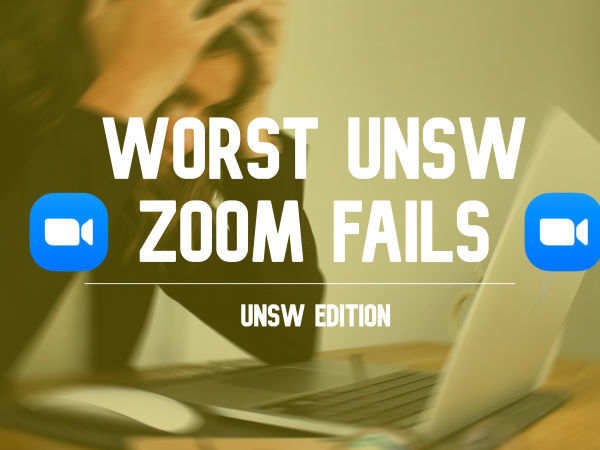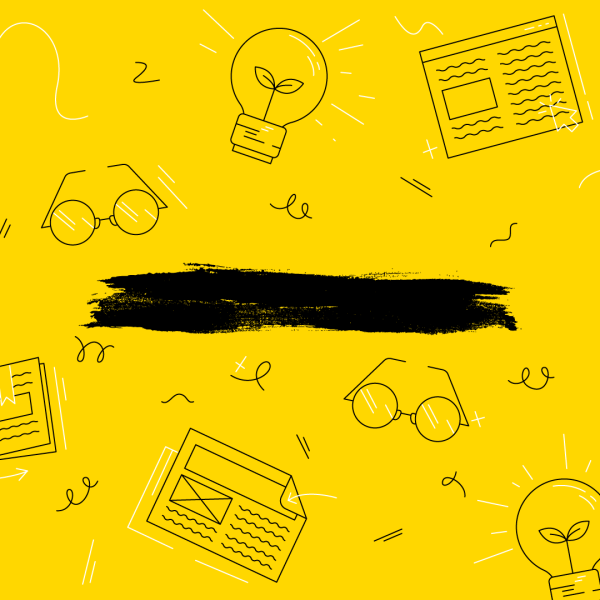The change is now, an opinion on the revolutionary change on the Higher Education System by the COVID-19 Pandemic
University has existed for more than a thousand years in human society, but no other event did what COVID-19 (this will be referred as ‘the pandemic’ for the rest of the article) did, and nothing has ever had such an impact on the forged-iron form of the higher education system.
During the pandemic, we were separated from one another. The whole world came to a pause for a while. Among us, some saw this as an opportunity to enact a revolutionary and positive change on the education system with a little help from modern technology.
I believe we are all too familiar with the saying “the first step is the hardest”, and this also applies to the higher education system. In my correspondence with Prf. Adam Micolich from School of Physics he pointed out ‘Making a change without COVID was always difficult as there was little incentive to change and people, including students can be naturally conservative’, and also stated that ‘COVID forced change and amazed people with what is possible’.
The change is at once dramatic, but also subtle. For me, the asynchronous nature of the lectures means I can watch them anytime. I personally have a very short attention span and when I come to think about it, I'm always in another world by the second half of every lecture. Which means the asynchronous nature of online lectures has benefited me significantly, I can watch until I can’t focus anymore and then come back to it later. This can also help people who live far away from campus significantly while teaching students something a lot of us definitely do not possess, namely time-management. This is also pointed out by Prf. Micolich, stating ‘This [asynchronous online lectures] will reduce time lost to commutes and better enable time-management with other things, e.g. work or internship or whatever’.
Some may want to stay with the old ways, where no change means good, but as university students, we are meant to bring changes to the world and the change is now, in our very own hands.
The full interview transcript is presented below:
J. Liang: As a professor, how has covid impacted you in terms of workload?
Prf. Micolich: Significantly. We are always busy, with a need to juggle teaching, teaching prep, running a research group, getting research, and some of us have substantive admin roles too. Covid has driven the hours up on all of those somewhat, especially the teaching prep and admin roles. Some of this is just covid, some of this is a financial kick-ons of covid on staffing last year.
J. Liang: As a professor, have you noticed the general performance of the student body gone down, and do you think it is the fact that it was impacted by online-learning?
Prf. Micolich: Not especially, and it would be hard to distinguish what is covid and what is other factors, e.g., calendar changes, other course changes. Covid will have had some serious impacts at early-mid-2020 for sure, but people adapt quickly. This is hard to comment on precisely.
J. Liang: Have you been enjoying your work (as in teaching) as much as you used to?
Prf. Micolich: Teaching, definitely, I'd say I've enjoyed it more. Covid has given me the space to be adventurous and try new things. Standing at the front of a lecture theatre and talking at people isn't not rewarding but it's also not the optimum way to teach either in my opinion. Making a change without covid was always difficult as there was little incentive to change and people, including students, can be naturally conservative. Covid forced change and amazed people with what is possible. There's now a short window to exploit that and get transformational change, which is something a subset of the teaching staff are really chasing. It was also interesting for some of us who had admin roles (e.g., me). I found the challenges of 2020 exciting.
J. Liang: What do you think current students should do facing an evolutionary change in the Higher Education System?
Prf. Micolich: Look for the things that benefit them and advocate strongly for them. For example, online synchronous lectures had a major advantage in that they enable timetable flexibility and reduce commutes. This is a positive. There are others. I think this is the one time where change could be huge, but if students just ask to go back 'to the old way' that opportunity could well be missed.
J. Liang: What is your view towards the future of the higher education system?
Prf. Micolich: Gazing into my crystal ball... I see higher education becoming more digital off the back of this. More of the one-way transmission that used to be lectures can be done online, from home, at the students' convenience. I think the campus that wins this game will be the one that works out a) how to optimise the on-campus time towards things that truly need to be on-campus, e.g., labs or group sessions or heavily two-way interactions between staff and students, and b) how to resource that in both time and architecture. A key aspect in this will be timetabling such that students can 'condense' their time on campus so they are there for a solid time block that's meaningfully used for things that need to be non-online. This will reduce time lost to commutes and better enable time-management with other things, e.g., work or internships or whatever.
J. Liang: Personally I find learning is better managed when I get the chance to walk around on campus and get some sweat out. And there is less incentive for me to walk around in-between lectures when I sit at home. What would you recommend students to do in terms of keeping their physical health?
Prf. Micolich: Yeah, schedule exercise in your day. Make it a non-negotiable block in the day, I allocate it minimum 1 hour a day, and it's priority number one, along with getting enough sleep and down-time on weekends.
J. Liang: What do you think of the open book exams right now, because of covid exams are now mostly open book. Do you think it is a good way of examination or do you much prefer the old way?
Prf. Micolich: I don't have a problem with open book per se, I think the problem is that guaranteeing the assessment is free of cheating and properly fair (some have better environments at home to do the exam in than others) is the challenge with the online exams of covid. I personally think that we assess way too much at uni now, as a result the students obsess way too much about assessment and WAM, to an extent detrimental to both their mental health and their learning, and we massively stifle the opportunities to take the risks and make the mistakes of learning tough subjects and pushing your envelope in doing this.
J. Liang: That is actually a good point. Personally I enjoy just exploring the idea of physics and that is the true fun of it, getting a HD in a physics course is quite hard and it can easily drive me crazy having every detail perfect.
Prf. Micolich: I was kind of lucky in that I didn't care much about marks and WAM (it didn't even exist actually!) as an undergrad, for reasons that would be way too long for now. That gave me the freedom to just 'go for it' and I got a hell of a lot out of that. I felt quite free to just 'go after stuff' without marks or a prescribed career track or my parents or whatever making me have to worry about it all.





